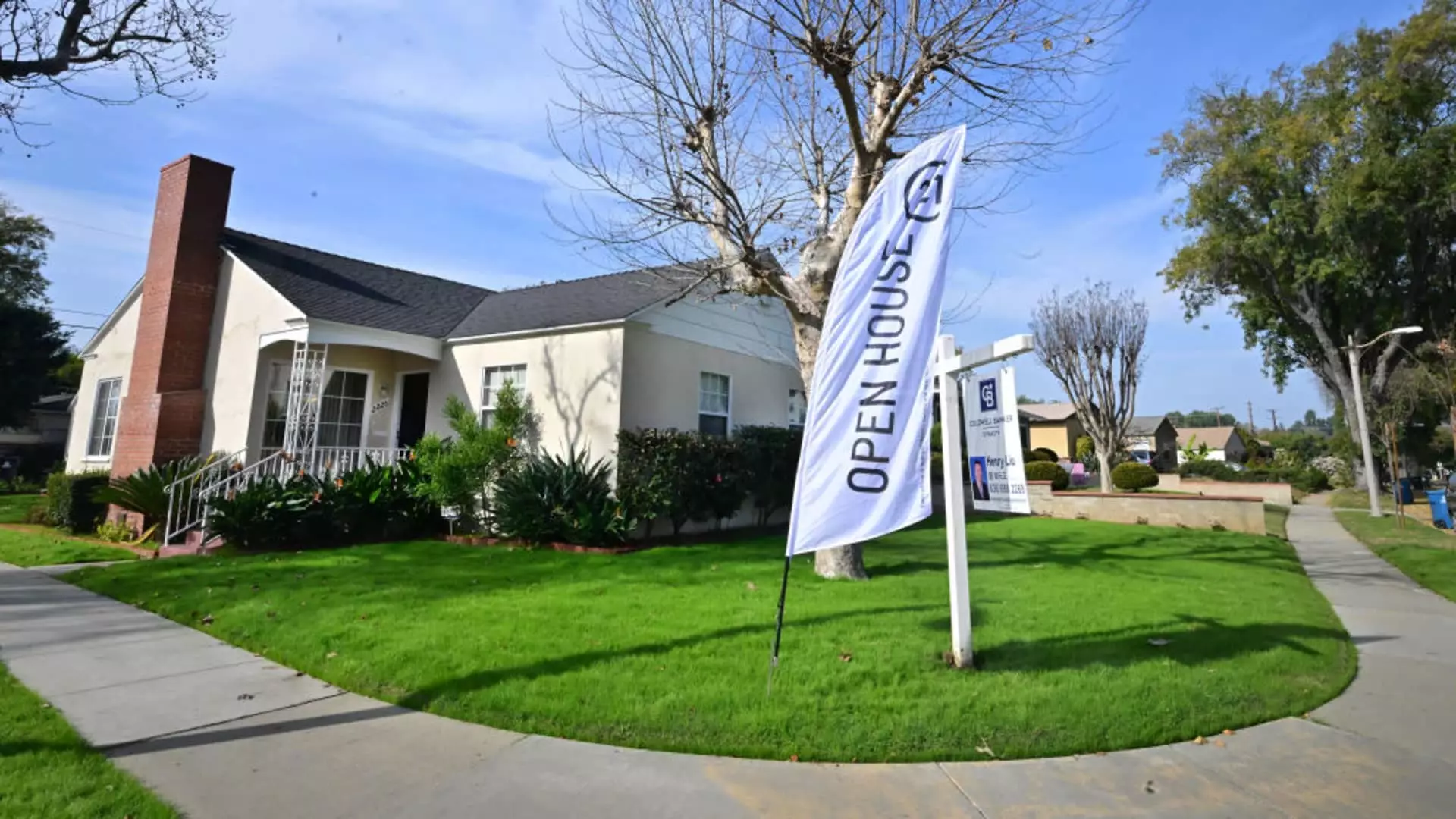In the past week, the mortgage landscape has experienced a notable downturn as mortgage rates climbed once again. The Mortgage Bankers Association (MBA) reported a staggering decline of 10.8% in total mortgage application volume when compared to the previous week. This shift indicates a troubling trend for both prospective homeowners and those looking to refinance their current loans. The average interest rate for a 30-year fixed mortgage rose to 6.81%, reflecting a broader environment of increasing costs for borrowing money. Such an increase can have a chilling effect on the housing market, compelling many buyers to reconsider their financial options.
Impact on Refinancing and Purchase Activity
The persistent rise in mortgage rates has contributed to a significant drop in refinancing applications, which plummeted by 19% over the last week. This downward trajectory marks the sixth consecutive week of declining applications, highlighting an alarming trend—refinance activity has reached its lowest point since May. Interestingly, despite this week’s tumble, refinance applications are still up 48% compared to the same week last year, signaling that, while current rates may discourage immediate action, many homeowners have benefitted in the long run from lower rates available in prior months.
Similarly, applications for new home purchases have also taken a hit, declining by 5% for the week. While there was a modest 2% increase in purchase applications compared to last year, the downward shift paints a less optimistic picture. As homebuyers are confronted with the reality of rising rates, many are forced to reassess their budgets, potentially stalling their homebuying aspirations.
Market Dynamics Influencing Buyer Sentiments
Recent trends indicate a complex interplay of market dynamics influencing buyer behavior. Although supply in the real estate market has slightly improved and home prices have stabilized, the reality of elevated mortgage rates is prompting many to hesitate. Prospective buyers may be deterred by the psychological impact of economic uncertainty surrounding upcoming elections, which can make individuals wary of committing to long-term financial obligations. This cautious approach is further exacerbated by the impending decision by the Federal Reserve on interest rates, which could either alleviate or intensify current borrowing costs.
Additionally, analysts have noted a trend where homeowners with larger loan amounts are more acutely affected by rate fluctuations. The average loan size for refinance applications has fallen below $300,000, indicating that those with more significant financial commitments are increasingly reconsidering their borrowing strategies in response to rising rates.
The sharp rise in mortgage rates and its subsequent impacts on application volumes present a challenging landscape for both potential buyers and current homeowners. As interest rates tighten, clarity remains elusive, particularly as external factors like economic conditions and political events continue to create uncertainty. Homebuyers must exercise patience and prudence, weighing their options carefully in a market that is at once presenting fresh opportunities and formidable challenges. The coming weeks will be critical, as buyers, investors, and lenders alike await actionable insights from future economic indicators and Federal Reserve announcements.

